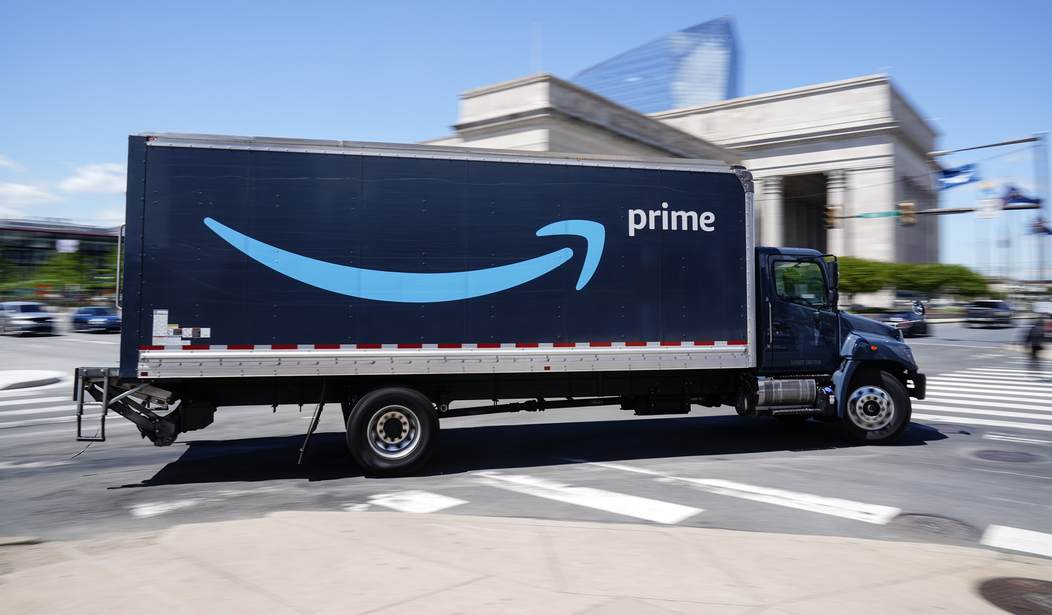Federal Trade Commission Chair Lina Khan has had a documented grudge against Amazon for years, since she penned her academic paper, "Amazon's Antitrust Paradox" while working as a professor at Columbia Law School. Just a few years later the activist was promoted to regulator when her comrade, CFPB Chair Rohit Chopra, brought her on as a "legal fellow" at the FTC when he was a commissioner. Now she's taken that grudge to the next logical step, filing an antitrust suit against Amazon. The FTC was joined by 17 states in this action, which was filed in Amazon's home state of Washington.
In announcing the lawsuit, Khan said:
The complaint sets forth detailed allegations noting how Amazon is now exploiting its monopoly power to enrich itself while raising prices and degrading service for the tens of millions of American families who shop on its platform and the hundreds of thousands of businesses that rely on Amazon to reach them.
There are lots of reasons for conservatives to take issue with Amazon, but engaging in capitalism isn't one of them - and that's exactly what the FTC and the states joining in this lawsuit are mad about. What they call "anti-competitive practices" are logical things any business would do to amplify their competitive advantages.
The complaint accuses the company of engaging in anti-competitive practices through measures that deter sellers from offering lower prices for products on non-Amazon sites, an argument mirroring allegations made in a separate lawsuit filed last year by the state of California.
The lawsuit also says Amazon compels sellers to use its logistics service, Fulfillment by Amazon, in order to make their products eligible for Amazon Prime, even though many of them would rather use alternative fulfillment services to get orders to customers.
The lawsuit also accuses Amazon of degrading customers’ experience by replacing relevant search results with paid advertisements, favoring its own brands over other products it knows to be of better quality, and charging heavy fees that force sellers to pay nearly half of their total revenues to Amazon. According to the anti-monopoly organization Institute for Local Self-Reliance, the cut sellers give to Amazon from their revenue is up from 35% in 2020 and 19% in 2014.
The government is also seeking a permanent injunction against Amazon, prohibiting them from engaging in what the FTC says is "unlawful conduct" with the purpose of loosening its alleged "monopolistic control to restore competition."
Amazon is pretty popular with consumers, though, and is viewed much more positively - and as more trustworthy - than the government. A May 2023 Harvard-Harris poll ranked Amazon as the most favored institution in America, ahead of all other companies, government institutions, and even the military. And, Amazon ties with UPS as the second most trusted brand in the United States, with Band-Aid coming in first, according to an April 2023 Morning Consult poll.
Responding to the lawsuit, Amazon General Counsel David Zapolsky said that the FTC's action will actually harm consumers, not help them:
If the FTC gets its way, the result would be fewer products to choose from, higher prices, slower deliveries for consumers, and reduced options for small businesses — the opposite of what antitrust law is designed to do.
I don't normally share news from NBC, but this breaking news clip was just hilariously bad. It makes it seem that Amazon incentivizing sellers to use its distribution facilities is somehow an eeeevilll practice. Enjoy!














Join the conversation as a VIP Member